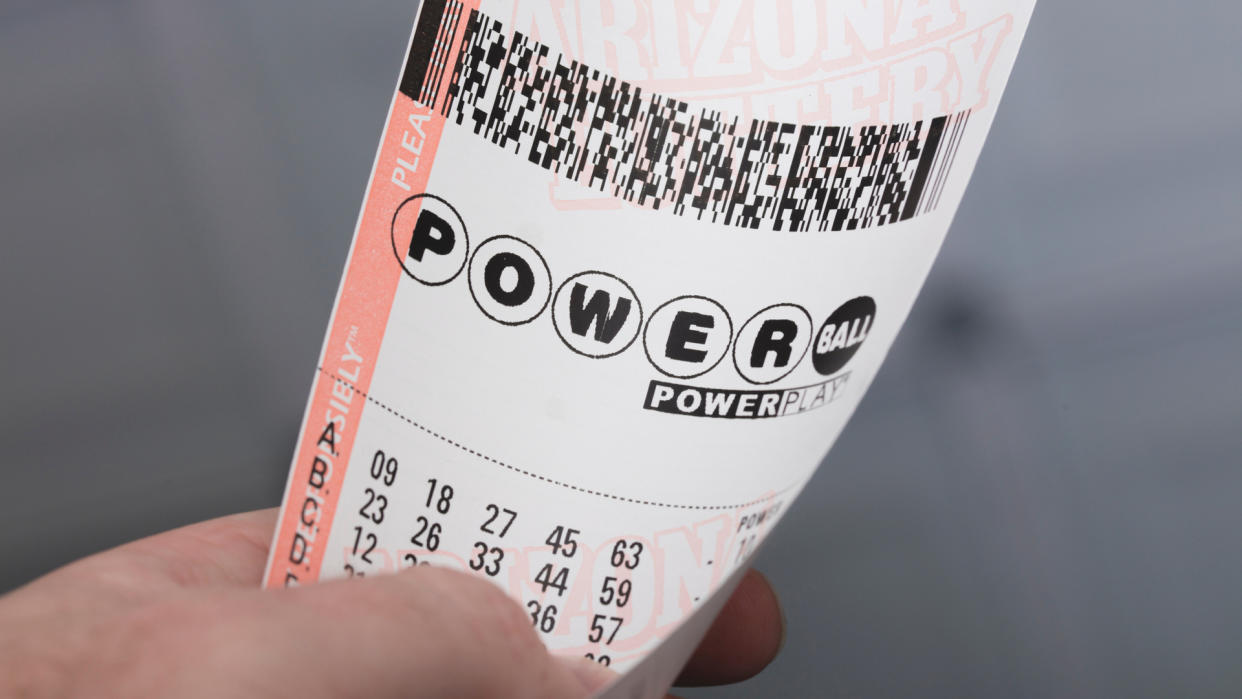Why Lottery Winners Go Bankrupt (and What They Should Do Differently)

It’s difficult to nail down a reliable statistic related to how many lottery winners go bankrupt. Some sources say one-third, while others say up to 70%. However, it’s easy to find more than a handful of stories online about people who have received a large financial windfall and blown through the money in a short amount of time. Although winning millions of dollars might seem like it would be a dream come true, managing it can be a nightmare.
Find Out: Why Stealth Wealth Is the Best Way To Handle Your Money
See: How To Build Your Savings From Scratch
Here’s why lottery winners go bankrupt and what they should do differently.
Why Do Lottery Winners Go Bankrupt?
Lottery winners can find themselves bankrupt for a variety of reasons. Here are a few.
They Don’t Know How To Handle Their Newfound Wealth
When people who are not wealthy win large amounts of money in the lottery, they don’t inherently know how to keep it, said Derek Sall, founder and lead of Life And My Finances.
“It’s kind of like taking a person off the manufacturing floor, putting them in the CEO spot and telling them to run the company,” he said. “They just don’t have the proper training to do it.”
Such was the case with Jack Whittaker, who won $314 million in a Powerball jackpot in 2002. He squandered the money by giving it away with abandon to friends, family members, waitresses and strippers.
They Overestimate Their Winnings
The lottery winner often looks at the headline lottery award instead of the net lottery award when spending, said Robert R. Johnson, Ph.D., CFA, CAIA, professor of finance, Heider College of Business, Creighton University. “One could win a $5 million lottery award and have about half of that after taxes depending on one’s state of residence,” he said.
I’m a Financial Planning Expert: Here Are 5 Things You Should Never Spend Money on If You Want To Be Rich
They Make Foolish Investments
Sall also noted that many winners invest in things they think are wise, but that end up in failure, such as video-game startups, car wash franchises and crypto.
One example is Lisa Arcand from Massachusetts who won $1 million in a 2004 lottery. She invested part of it into a restaurant, which failed within a few years.
They Spend Recklessly
“If you have poor money management before winning, increasing the pool just gives you more money to spend,” said Morris Armstrong, founder and owner at Morris Armstrong EA LLC.
“Losers impulsively buy houses, cars, vacations and other possessions in excess,” he said. “The reality is, how many cars do you need or houses? Losers tend to forget that.”
Other People Demand Money
Sall noted that people tend to “come out of the woodwork” when they find out a friend or relative won the lottery. “Everyone wants to mooch and demand their ‘fair share’ of the winnings,” he said. “Lottery winners try to be fair and give money to each person, but it usually ends up in broken relationships and a lot of lost money.”
Jeffrey Dampier was one such example. He won $20 million in a 1996 Illinois lottery. He gave millions to friends and family, including his secret lover. When he cut off his paramour, however, she became upset and got her then-boyfriend to murder Dampier.
What Should Lottery Winners Do To Avoid Going Bankrupt?
Winners who take the time to plan their next move will help ensure that bankruptcy isn’t the end result of winning a huge lottery windfall. Here are some expert tips.
Seek Professional Advice
“The first thing lottery winners should do — even before cashing the winning ticket — is to avail themselves of the services of a credentialed financial advisor,” Johnson advised. He said it is preferable to hire one who possesses a respected designation, such as the certified financial planner (CFP) or chartered financial analyst (CFA) designation.
Andrew Latham, certified financial planner and director of content of SuperMoney, said, “A trusted financial advisor can provide guidance on how to invest and manage the money responsibly, plan for taxes and create a sustainable budget that enables you to enjoy your wealth without risking bankruptcy.”
Keep Spending in Check
Latham said that while it can be tempting to splurge on luxury vacations or designer goods, that type of spending should be moderated and budgeted for — not done impulsively. “A smart move for winners who don’t have experience managing money would be to invest most of their winnings in low-risk investments and only allow themselves to spend the money generated by their investments,” he said. “That way, their winnings could provide an income that could last their entire lives and still have money to leave their loved ones.”
Learn To Say ‘No’
“While it’s natural to want to help friends and family, setting boundaries is crucial to preserving one’s wealth,” Latham advised.
To avoid having to deal with friends and family members asking for a handout, Armstrong said that his firm counsels multimillion-dollar winners to consult with an attorney before claiming the prize and, if the state they live in allows for privacy, to take it. “Some states, such as Connecticut, do require that the winner’s name be made public,” he cautioned.
Consider Investing the Majority of Your Winnings
Latham recommended this strategy. “A well-diversified portfolio can generate a steady income over time, providing financial security for the future,” he said.
More From GOBankingRates
This article originally appeared on GOBankingRates.com: Why Lottery Winners Go Bankrupt (and What They Should Do Differently)
